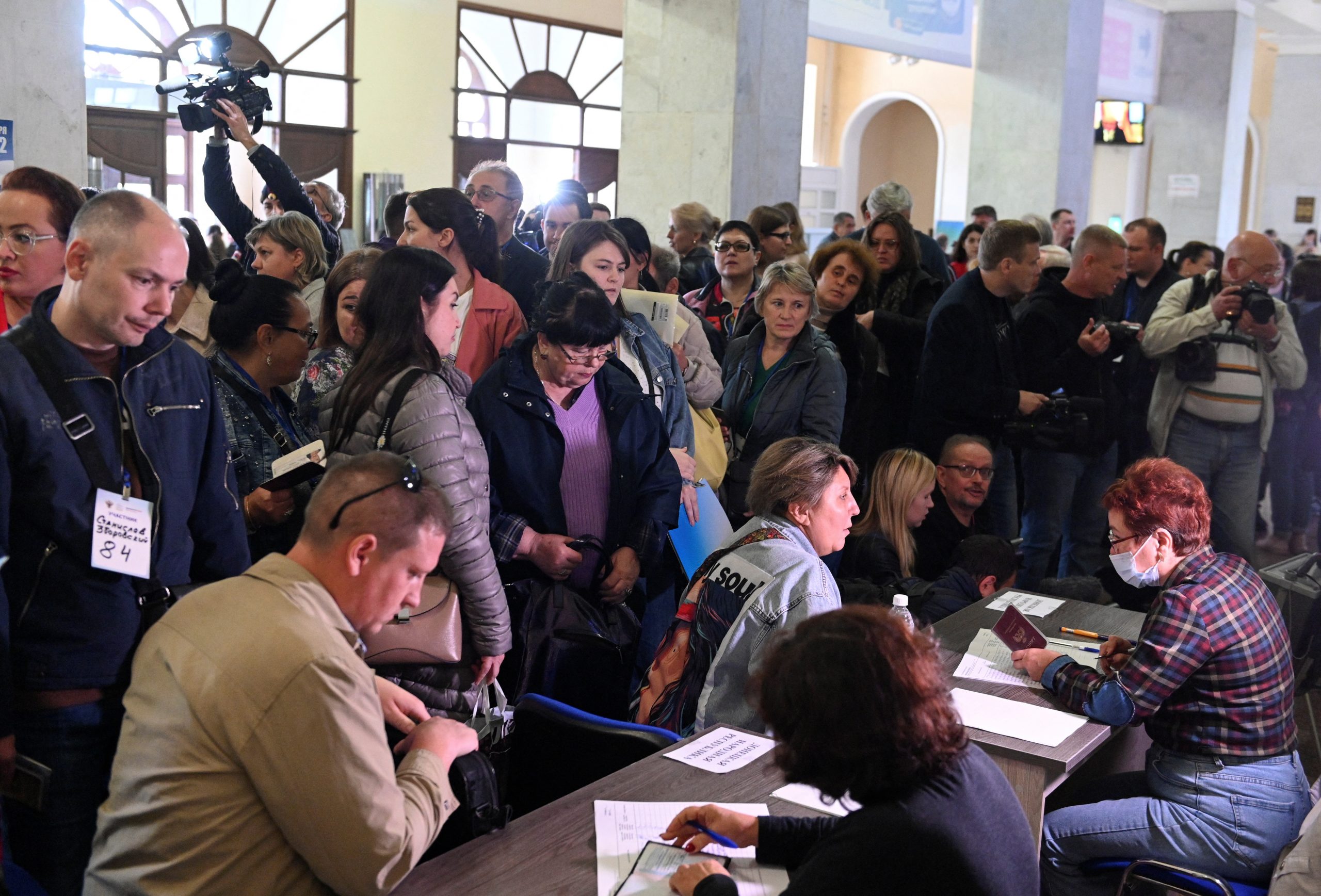
Lauren C. Moye, FISM News
[elfsight_social_share_buttons id=”1″]
Russia began referendums Friday that could result, at least according to the Kremlin, in the legal annexation of four occupied regions in Ukraine, this despite world leaders condemning act and vowing not to recognize the results.
The votes began in the Ukrainian provinces of Luhansk, Donetsk, Kherson, and Zaporizhzhia and will continue until Tuesday. Together, these regions comprise roughly 15% of Ukraine’s territory.
There have been complaints of coercion from the regions, including civilians forcibly turned out of their homes to go vote and companies threatening to fire employees who do not cooperate.
“Today, the best thing for the people of Kherson would be not to open their doors,” said Yuriy Sobolevsky, who once served as the first deputy council chairman of the Kherson region until the Russian occupation displaced him.
Russia also used referendums to annex Crimea in 2014.
“These are not just crimes against international law and Ukrainian law, these are crimes against specific people, against a nation,” Ukrainian President Volodymyr Zelensky said about the votes, adding the referendums would be “unequivocally condemned” globally.
Some have suggested that the votes, which are consistently described as hastily organized, have been prompted by the lightning counteroffensive through which Ukraine has retaken large swaths of territory.
“So Russia is rushing to conduct these sham, again, referenda, but these are not acts of confidence or strength. They are complete opposite,” White House Press Secretary Karine Jean-Paul said Friday.
Moscow, however, has defended the votes as giving civilians a chance to voice their views.
“The United States will never recognize Ukrainian territory as anything other than part of Ukraine,” President Joe Biden said in a released statement. “Russia’s referenda are a sham – a false pretext to try to annex parts of Ukraine by force in flagrant violation of international law, including the United Nations Charter.”
Biden promised to impose new economic sanctions if Russia did not abandon its annexation plan.
The North American Trade Organization (NATO) also said it would increase support for Ukraine in response to the referendums. Secretary-General Jens Stoltenberg said NATO’s answer “is to step up support” because strengthening Ukraine was the “best way to end this war.”
The Group of Seven also condemned the referendum.
A successful annexation of the territories might result in an escalation of the war. Even if, globally, nations do not acknowledge the transfer of territory, it could justify retaliation if the Kremlin does view the referendums as legitimate.
Annexation would provide Russia with the pretext to claim Ukraine is striking sovereign Russian territory. This could result in vastly increased hostility and use of deadlier weapons by the Russians.
“These votes have no legitimacy and of course they don’t change anything. This continues to be a war of aggression by Russia against Ukraine,” Stoltenberg said.
An annexation, whether recognized by the West or not, could also lead to conflict between the U.S. and Russia if American weapons are fired at targets within these four territories. Jean-Paul dodged those questions when asked how the U.S. would respond during Friday’s press conference.
Until now, Russia has called the Feb. 24 invasion a “special military operation.”
In addition to the referendum, Kyiv has also launched a draft to bolster troop numbers in Ukraine to secure 300,000 additional soldiers.
